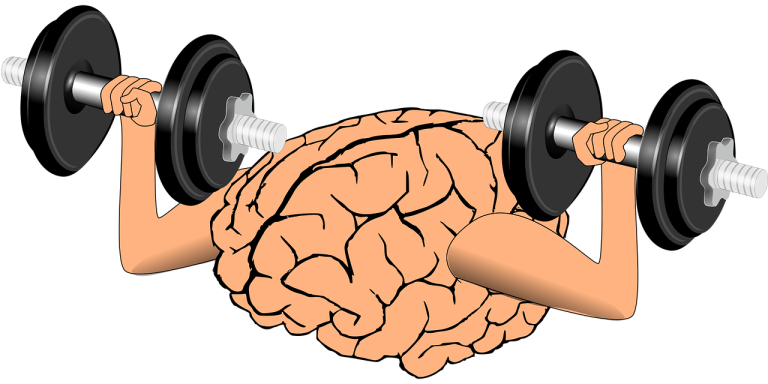Self-Creation: How To Become Who You Are
Are you ready to hop on a journey of self-discovery and transformation?
We explore the concept of self-creation and why it is essential for personal growth and fulfillment.
From self-reflection and goal-setting to overcoming obstacles and reaping the benefits, we delve into the steps needed to become the best version of yourself.
“Figuring out your motivators, values that move and guide you and what inspires you leads you to what you want to be.” ― Adeleke Aishat
Discover how practicing self-compassion, surrounding yourself with supportive people, and embracing change can lead to increased self-awareness, improved relationships, and a greater sense of purpose.
Join us as we explore the art of self-creation and learn how to maintain it for a fulfilling and meaningful life.

What is Self-Creation?
Self-creation involves the process of defining one’s identity, embracing individuality, and achieving self-realization through a journey of personal growth and authenticity.
It is a deeply personal and transformative journey where individuals actively shape their being, ideologies, and relationships to align with their true essence. Through self-creation, one can break free from societal norms and expectations, paving the way for authentic self-expression.
Embracing individuality in this process allows for the celebration of uniqueness and the acknowledgment of diverse perspectives. Authenticity plays a crucial role in self-creation as it enables individuals to live in alignment with their values and beliefs, fostering a sense of fulfillment and inner peace.
Importance of Self-Creation Important
Self-creation holds immense importance as it catalyzes personal growth, fosters self-awareness, enables self-expression, and facilitates continuous self-improvement.
By actively engaging in the process of self-creation, individuals embark on a journey of introspection and discovery.
Through setting personal goals, exploring passions, and embracing life experiences, one can truly understand their strengths, weaknesses, and unique qualities.
This deep self-awareness lays the foundation for authentic self-expression, allowing individuals to communicate their true selves to the world. As self-creation is a dynamic and ongoing process, it propels individuals towards constant self-improvement, encouraging them to evolve and adapt in pursuit of fulfillment and authenticity.
Steps to Self-Creation
Embarking on the path of self-creation involves transformative steps that encompass self-reflection, setting goals, taking action, and embracing failure as integral parts of the journey of self-discovery and self-identity.
Self-reflection plays a crucial role in self-awareness by providing individuals with the opportunity to explore their values, beliefs, strengths, and weaknesses. This introspective process enables clarity on personal identity and aspirations.
Setting goals is the blueprint for transformation, giving direction and purpose to one’s journey. Taking action turns aspirations into reality, fostering personal growth and development.
Embracing failure as a learning experience rather than a setback cultivates resilience and adaptability in navigating the ups and downs of self-discovery.
Self-Reflection and Awareness
Self-reflection and awareness form the foundation of self-creation, enabling individuals to delve deep into their identities, discover their true selves, and foster personal growth through introspection.
By engaging in self-reflection, one can gain a clearer understanding of their thoughts, emotions, behaviors, and values. This deep introspective process allows individuals to identify areas for improvement, strengths to leverage, and patterns to break.
“The only thing that we will ever truly know is ourselves; our personal being is our finest creation.― Kilroy J. Oldster
Through self-awareness, individuals can develop a stronger sense of their unique self-identity and create a roadmap for personal development. Self-reflection is essential in recognizing triggers, understanding reactions, and steering oneself towards more intentional and aligned actions in pursuit of meaningful self-growth.
Setting Goals and Intention
Setting clear goals and intentions is a crucial step in self-creation, as it paves the way for self-improvement, self-realization, self-empowerment, and the articulation of one’s self-definition.
By establishing concrete objectives and aligning one’s actions with purposeful intent, individuals embark on a journey of continuous growth and transformation. These goals act as guiding stars, steering one towards personal development, uncovering hidden potentials, and fostering a sense of accomplishment.
Intentionality infuses daily decisions and behaviors with meaning, shaping the narrative of one’s life story. When intentions are set mindfully and goals are pursued with dedication, individuals feel empowered to conquer obstacles, stay focused on their aspirations, and ultimately craft their unique identities.
Taking Action and Making Changes
Taking proactive steps and making necessary changes are pivotal aspects of self-creation, leading to transformation, self-fulfillment, instilling self-belief, and fostering self-acceptance.
By actively engaging in the process of self-reflection and self-improvement, an individual opens doors to endless possibilities and growth. Embracing change and stepping out of comfort zones allows one to break free from limiting beliefs and cultivate a mindset of resilience and adaptability.
Check out the new Motivation Mentor AI Coach
app from Motivation Pay… It’s FREE!
It is through taking intentional actions that one can sculpt a life rich in meaning, purpose, and authenticity. Each proactive decision serves as a building block in the construction of a stronger, more empowered self, fueled by the drive to evolve and thrive.
Embracing Failure and Learning from It
Embracing failures and extracting valuable lessons from them is a crucial element in self-creation, fostering personal growth, enhancing self-worth, achieving self-realization, and empowering oneself.
When individuals view failure not as a setback but as a stepping stone towards success, they open doors to endless possibilities. Each failure becomes a catalyst for self-discovery, enabling one to identify strengths, weaknesses, and areas for improvement.
By learning from mistakes and setbacks, individuals can develop resilience and perseverance, qualities that are essential in navigating life’s challenges.
Embracing failure creates a growth mindset, where setbacks are seen as opportunities for growth rather than reasons for self-doubt.
“You are the artist of your own life. Don’t hand the paintbrush to anyone else.” – Unknown
Obstacles to Self-Creation
Several obstacles may impede the journey of self-creation, including fear, self-doubt, external influences, and societal expectations that challenge individual authenticity and personal growth.
These barriers often manifest in various forms, leading individuals to question their true identity and potential. Fear can paralyze one’s actions, preventing them from taking risks or stepping out of their comfort zone.
Self-doubt can create a negative inner dialogue, sabotaging self-esteem and confidence. External pressures from family, friends, or society can dictate choices that may not align with personal values.
Societal expectations set standards that may not resonate with an individual’s authentic self, hindering genuine self-discovery and personal growth.
Fear and Self-Doubt
Fear and self-doubt can profoundly impact self-creation by undermining self-belief, limiting self-empowerment, hindering self-acceptance, and impeding personal growth.
When fear and self-doubt take hold, they create barriers that stifle one’s potential and dampen the spark of creativity within. These negative emotions can cloud judgment, leading to hesitation and reluctance in pursuing new opportunities or embracing change.

Over time, they erode self-confidence and rob individuals of the courage needed to step outside their comfort zones. It is essential to recognize that fear and self-doubt are internal constructs that can be conquered with perseverance and resilience.
External Influences and Expectations
External influences and societal expectations can challenge autonomy, limit self-expression, impact self-worth, and constrain individuality in the process of self-creation.
Such pressures often stem from cultural norms, family dynamics, peer influences, and media portrayals that create a web of expectations and judgments. These external forces can make it difficult for individuals to fully explore and embrace their true selves.
To navigate these challenges and reclaim autonomy, individuals can practice self-reflection, set boundaries with those imposing expectations, seek support from like-minded communities, engage in activities that foster self-discovery, and prioritize self-care to nurture their sense of self-worth and expression.
Ways to Overcome Self-Creation Obstacles
Overcoming obstacles in self-creation requires practicing self-compassion, fostering self-empowerment, and cultivating self-affirmation to navigate challenges with resilience and authenticity.
One effective strategy for fostering self-empowerment is setting clear goals and taking small steps toward achieving them. By breaking down big aspirations into manageable tasks, individuals can build momentum and feel a sense of accomplishment along the way.
Surrounding oneself with a supportive network of friends, mentors, or like-minded individuals can provide encouragement and guidance. Embracing self-compassion involves treating oneself with kindness and understanding, especially in times of setbacks or failures, to cultivate a positive self-image and inner strength.
“The greatest discovery of all time is that a person can change their future by merely changing their attitude.” – Oprah Winfrey
Self-affirmation plays a crucial role in reinforcing one’s values, strengths, and aspirations, helping to boost confidence and resilience when faced with obstacles.”
Practicing Self-Compassion and Positive Self-Talk
Practicing self-compassion and engaging in positive self-talk are essential strategies to foster self-acceptance, promote self-empowerment, enhance self-worth, and nurture personal growth in self-creation.
Through self-compassion, individuals can develop a sense of kindness and understanding towards themselves, which forms the foundation for overcoming obstacles and challenges with gentleness and resilience.
Positive self-talk serves as a powerful tool to reframe negative thoughts and beliefs, replacing them with empowering affirmations that boost confidence and motivation.
By acknowledging one’s worth and uniqueness, a person can cultivate a mindset of self-worth that is crucial for achieving personal growth and well-being.
Surrounding yourself with supportive individuals is instrumental in fostering self-growth, enhancing self-awareness, boosting self-belief, and facilitating self-realization on the journey of self-creation.
To implement these strategies, one can start by practicing mindfulness, journaling positive affirmations, seeking support from loved ones, and engaging in self-care activities that promote self-acceptance and self-empowerment.
Surrounding Yourself with Supportive People
Surrounding yourself with supportive individuals is instrumental in fostering self-growth, enhancing self-awareness, boosting self-belief, and facilitating self-realization on the journey of self-creation.
These individuals not only offer encouragement during challenging times but also provide valuable insights and perspectives that can help you navigate obstacles and setbacks. A strong support network can serve as a source of inspiration, motivation, and accountability, driving you towards your goals and aspirations.

Through meaningful connections and positive relationships, you can learn more about yourself, discover your strengths and weaknesses, and cultivate a deeper sense of self-awareness. Such connections can also instill a sense of confidence and belief in your abilities, empowering you to take on new challenges with courage and resilience.
Letting Go of Perfectionism
Releasing the grip of perfectionism is essential for cultivating self-acceptance, nurturing self-awareness, promoting self-improvement, and achieving self-fulfillment in the process of self-creation.
Striving for unattainable perfection often leads to anxiety, stress, and a constant sense of inadequacy. It can hinder personal growth by setting unrealistic standards that are impossible to meet.
By embracing imperfections and understanding that growth comes from making mistakes and learning from them, individuals can begin the journey toward self-acceptance. Developing self-awareness enables individuals to recognize their strengths and weaknesses, leading to more realistic self-improvement goals.
By actively participating in the process of self-creation, individuals allow themselves the opportunity to delve deeper into their inner selves and understand their values, desires, and aspirations on a profound level.
Practicing self-compassion and being kind to oneself are powerful strategies to counteract perfectionistic tendencies and pave the way for genuine self-fulfillment.
Benefits of Self-Creation
Engaging in self-creation yields numerous benefits, including increased self-awareness, heightened self-confidence, improved relationships, effective communication, and a greater sense of purpose and fulfillment.
By actively participating in the process of self-creation, individuals allow themselves the opportunity to delve deeper into their inner selves and understand their values, desires, and aspirations on a profound level. This introspection leads to a clearer sense of identity, helping them navigate life’s complexities with confidence and authenticity.
As self-awareness expands, so does the ability to form meaningful connections with others, fostering stronger relationships based on genuine understanding and empathy. Improved communication becomes a natural byproduct, enabling individuals to express themselves more authentically and engage in open, honest dialogues that further enrich their personal growth.”
Increased Self-Awareness and Self-Confidence
Self-creation results in heightened self-awareness, increased self-confidence, enhanced self-worth, achieved self-realization, and ongoing self-improvement, empowering individuals to thrive authentically.
As individuals embark on the journey of self-creation, they often uncover hidden layers of their personality and beliefs, leading to a deeper understanding of themselves. This newfound self-awareness catalyzes personal growth, enabling individuals to recognize their strengths and weaknesses with clarity.
Self-creation enhances relationships by fostering effective communication, promoting self-expression, nurturing authenticity, and empowering individuals to engage meaningfully with others.
Consequently, this clarity breeds self-confidence, allowing individuals to navigate challenges with a sense of assurance and resilience. With a solid foundation of self-worth and self-realization, individuals are motivated to continuously strive for self-improvement, fostering a cycle of growth and development in various aspects of their lives.
Improved Relationships and Communication
Self-creation enhances relationships by fostering effective communication, promoting self-expression, nurturing authenticity, and empowering individuals to engage meaningfully with others.
This process of self-creation plays a vital role in enriching personal growth, leading to a deeper understanding of oneself and others. By embarking on a journey of self-discovery and embracing one’s unique qualities, individuals are better equipped to express their thoughts and emotions authentically, thus creating stronger connections with those around them.

When individuals are true to themselves, they exude confidence and self-assurance, which in turn positively impacts their interactions and relationships. Authentic self-expression fosters mutual respect and understanding, paving the way for more fulfilling and harmonious interpersonal connections.
Greater Sense of Purpose and Fulfillment
Self-creation leads to a profound sense of purpose and fulfillment, turning self-beliefs into self-fulfilling prophecies, amplifying self-empowerment, and culminating in self-realization.
By actively shaping one’s identity and beliefs, individuals can set a positive cycle in motion where their internal narratives translate into external realities. When one believe in their potential, they are more likely to take bold actions that align with their aspirations, reinforcing their self-worth and ability to achieve their goals.
This alignment of beliefs with actions is pivotal in unlocking one’s full potential and creating a life defined by authenticity and self-fulfillment. The transformative impact of deliberately aligning thoughts with behaviors is the catalyst for a journey toward self-actualization.
Prioritizing self-care through healthy habits, mindfulness practices, and setting boundaries nurtures mental, emotional, and physical well-being, enabling individuals to thrive.
Ways to Maintain Self-Creation
Sustaining self-creation involves continuous self-reflection, embracing change, prioritizing self-care, practicing self-love, and cultivating adaptability to ensure ongoing personal growth and authenticity.
By engaging in regular self-reflection, one can gain valuable insights into their thoughts, emotions, and behaviors, leading to a deeper understanding of oneself. This introspection allows individuals to identify areas for improvement and make necessary adjustments to align with their evolving values and aspirations.
Embracing change with an open mind and a willingness to step out of one’s comfort zone fosters resilience and agility in navigating life’s uncertainties.
Prioritizing self-care through healthy habits, mindfulness practices, and setting boundaries nurtures mental, emotional, and physical well-being, enabling individuals to thrive. By fostering self-love and acceptance, individuals can build a strong foundation of confidence and resilience to face challenges with grace and compassion.
Evolving authentically over time involves honoring one’s true self, embracing growth opportunities, and staying true to core values while adapting to the changing circumstances of life.
Continuously Reflect and Set New Goals
Continuously engaging in self-reflection and setting new goals fosters self-awareness, drives ongoing self-improvement, refines self-definition, and propels individuals forward on their journey of self-creation.
Regular self-reflection allows individuals to introspect, understand their thoughts and actions, and make necessary adjustments to align with their aspirations.
By setting achievable goals and periodically assessing progress, one can stay motivated and focused on personal growth.
Embracing change through reflection and adapting goals when needed ensures that individuals evolve in a meaningful way, always striving to reach their fullest potential.
This cycle of self-reflection and goal-setting is not just a process; it becomes a transformative journey toward becoming the best version of oneself.
Embrace Change and Adaptability
Embracing change and cultivating adaptability are essential for navigating transformations, fostering self-empowerment, facilitating self-growth, and ensuring continued authenticity in the realm of self-creation.
These qualities play a crucial role in shaping an individual’s ability to thrive in an ever-evolving world.
By embracing change, one opens up pathways to new opportunities and experiences, while cultivating adaptability allows for the flexibility to adjust and respond effectively to various challenges.
Developing these skills not only enhances personal growth but also builds resilience, enabling individuals to bounce back stronger from setbacks.
Taking time for self-care allows individuals to recharge and replenish their mental, emotional, and physical reserves.
Embracing change with a positive mindset and nurturing adaptability leads to a more fulfilling and enriching journey of self-discovery and transformation.
Practice Self-Care and Self-Love
Prioritizing self-care and practicing self-love are integral components of self-creation, nurturing self-compassion, fostering self-acceptance, enhancing self-worth, and promoting overall well-being.

Taking time for self-care allows individuals to recharge and replenish their mental, emotional, and physical reserves.
Self-love, on the other hand, involves treating oneself with kindness, respect, and understanding. When individuals practice self-compassion, they learn to be more forgiving towards themselves, develop a sense of inner peace, and cultivate a positive self-image in revamping their lives.
By embracing self-acceptance, individuals can let go of unrealistic expectations and embrace their authentic selves. This journey to self-discovery is crucial in aligning with one’s true values and aspirations.







